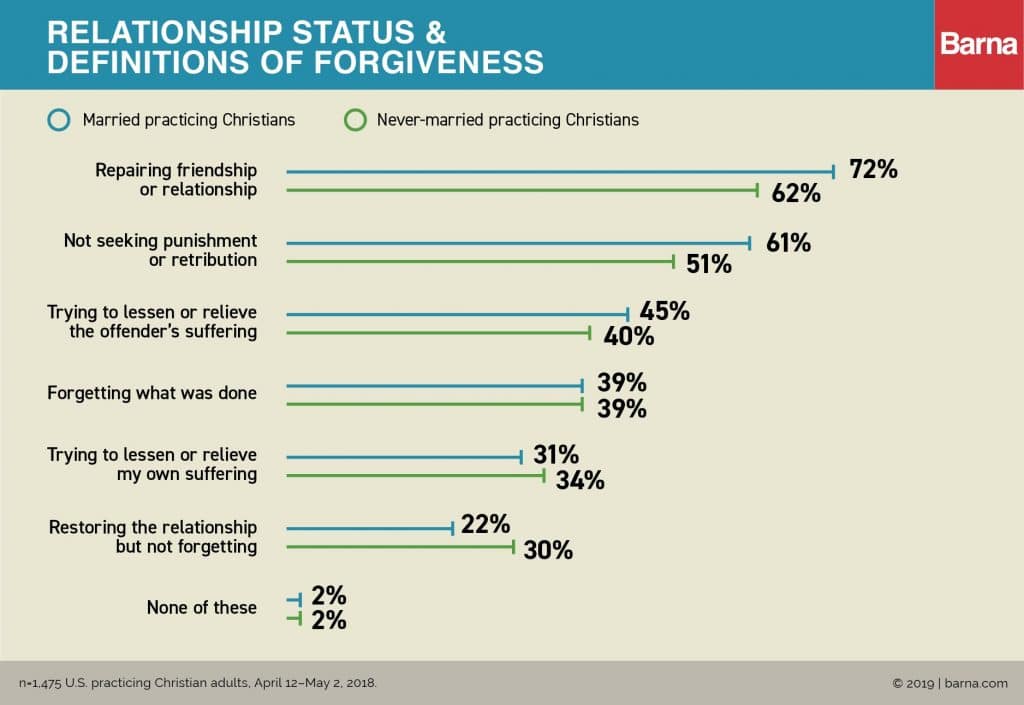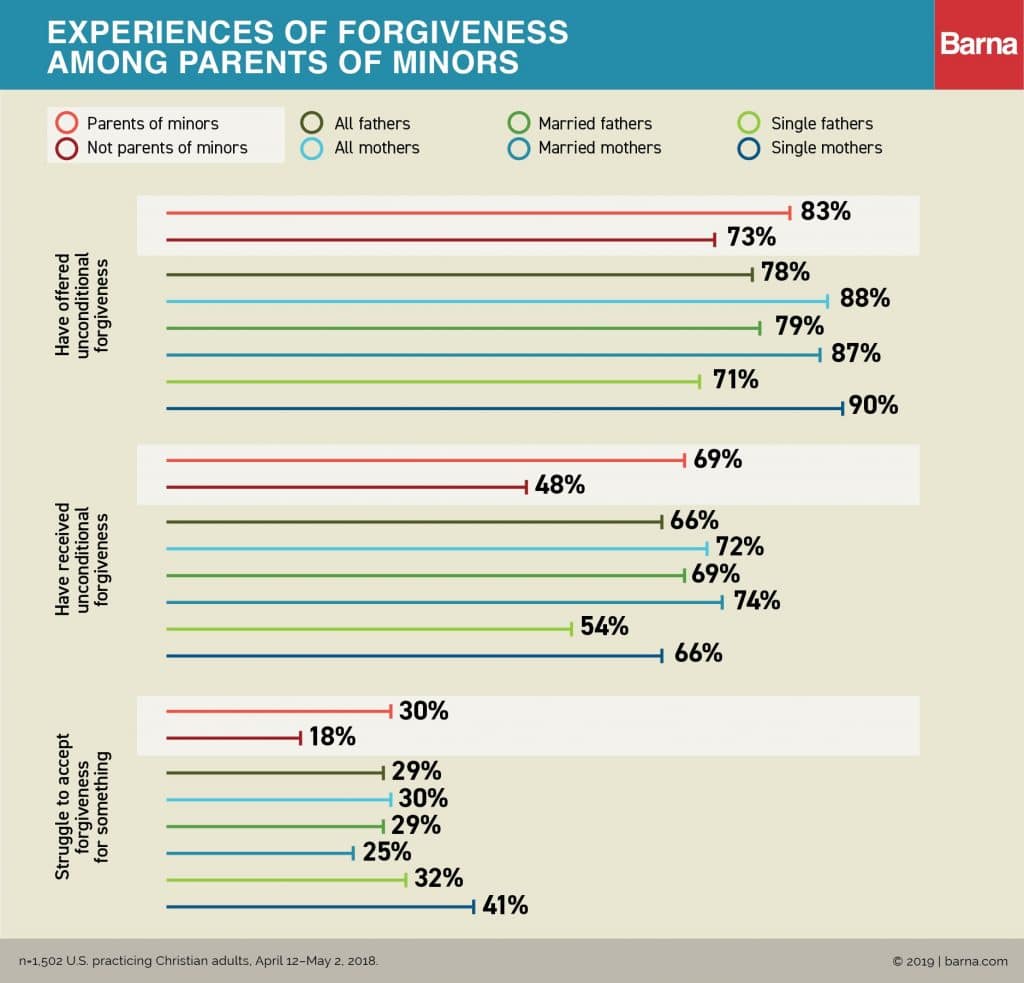Barna Group, a Christian-based research group started by David Kinnaman, recently conducted a study on how marriage and parenting impact an individual’s understanding of forgiveness. Per the description of the product, this report covers:
- New data and infographics about prevailing attitudes and practices of mercy and justice in the Church
- An overview of how people define, offer and accept forgiveness in their daily lives
- Gaps between practicing Christians’ and pastors’ perceptions of how churches facilitate hope and healing
- Details about how life stage, generation and political ideology factor into expressions of compassion
This study is based on quantitative surveys of 1,007 U.S. adults, 1,502 U.S. practicing Christian adults and 600 U.S. senior pastors of Protestant churches.
Of course, forgiveness is an interesting conversation that we may look into on a later blog article. What we know to be true is that forgiveness is at the heart of the Christian faith as Jesus’ death on the Cross is the ultimate grace-filled act. Within counseling, forgiveness is something that can be one of the most powerful tools for people who struggle with trauma, substance use, or in couples counseling. So how does marriage and parenting impact our ability to forgive?
Married Couples
Christian marriage is supposed to be two Christians who have made a deep commitment to each other and God in supporting each other, raising a family, and together being a light for the world.
Many times, our own individual sin and brokenness get in the way of this. It is in these ebbs and flows of a relationship that we must better understand how we serve others, specifically the one we have made the strongest commitment to.
When our sin impacts our spouse, it is the turn of the spouse to forgive. Of course, this word forgive is complicated and was explored in the research. Barna offered what it means to forgive and Christian married couples tended to have a stronger definition than Christians who were never married.

As Christian, married couples, you are more likely than non-married Christians to believe forgiveness is about repaired a relationship, not seek punishment, lessen the suffering of the one who sinned, and be selfless.
I believe this is what God expects of all Christians and what we received from Jesus when He covered our sins with His blood. If we can give forgiveness to the one who we live life with day in and day out, how much better can we do for others?
Parenting
Parenting is a unique understanding of forgiveness. In my own interpretation of this, our children tend to inherit our own personal faults. They are mini-mes running around and our sin is learned by them. So when my son gets mad, they learned that from me. When my daughter pouts because she did not get her way, that was from me.
So forgiveness is unique too. We are needing to forgive them, but also our own sinful nature is reflected in them and we need to forgive ourselves too. Further, in forgiving them, we need to also change our ways.
The research covered three factors of forgiveness from parents, including:
- Parents have offered unconditional forgiveness.
- Parents have received unconditional forgiveness from the children.
- Parents struggle to accept forgiveness from others for something the parents did.

With a priority set on moving past offenses, couples appear to encounter fewer barriers to giving forgiveness. A third of never-married practicing Christians (33%) says there is someone they don’t want to forgive. This contrasts with less than a quarter of married practicing Christians (24%) who say the same. Similarly, three in 10 never-married singles (28%) also say there’s someone they just can’t forgive, while only one-fifth of married individuals (21%) agrees with this statement.
Why is it easier for Christian parents and married couples to give forgiveness? Married practicing Christians and parents rely on their partner for many needs, both practical and emotional and so the art of forgiving and being forgiven is being practiced fundamentally even when forgiveness is not needed.
It’s not to say that Christian parents and married couples should be the shining stars. Divorce rates and domestic violence rates among Christians are as high or higher than those who are not Christians. We have a long way to go, but I believe with the power of God and grace of Christ, anything is possible. We simply must ask for His guidance.
What have you experienced with regards to forgiveness with parenting and married couples, whether in your own experiences or seeing others? Do those experiences reflect this research?
